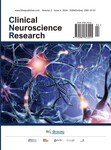Abstract
Objective: To evaluate the therapeutic effects of paliperidone and risperidone orally disintegrating tablets on schizophrenia (SCH). Methods: A total of 66 hospitalized SCH patients admitted between April 2022 and October 2023 were selected. They were randomly divided into two groups using a random number table. The study group was treated with paliperidone, while the control group was treated with risperidone orally disintegrating tablets. Differences in efficacy, symptom scores, and adverse reaction rates were compared between the two groups. Results: The overall efficacy rate in the study group was similar to that of the control group (P > 0.05). After three months of treatment, Positive and Negative Syndrome Scale scores in both groups were significantly lower than those before treatment, with the study group exhibiting lower symptom scores than the control group (P < 0.05). The adverse reaction rate in the study group was lower than that in the control group (P < 0.05). Conclusion: Paliperidone demonstrates therapeutic efficacy for SCH patients comparable to risperidone orally disintegrating tablets. However, paliperidone significantly improves disease symptoms and reduces medication-related side effects.
References
Yue J, 2022, Comparison of the Efficacy and Safety of Pipotiazine Hydrochloride and Risperidone in the Treatment of First-Episode Schizophrenia. Chin Mod Drug Appl, 16(12): 130–133.
Wang J, Gao Z, 2022, Clinical Efficacy and Safety of Pipotiazine in the Treatment of Schizophrenia. J Clin Psychosom Dis, 28(3): 137–139.
Dong N, Meng J, 2023, Observation of the Efficacy of Buspirone Combined with Pipotiazine in the Treatment of Schizophrenia. Xinxiang Med Univ J, 40(3): 257–261.
Li Y, 2022, Effects of Different Doses of Amisulpride Combined with Pipotiazine Hydrochloride on Glucose and Lipid Metabolism in Patients with Treatment-Resistant Schizophrenia. Int J Psychiatry, 49(3): 433–435 + 443.
Shang Y, 2022, Clinical Efficacy of Paliperidone Extended-Release Tablets Versus Pipotiazine Hydrochloride Tablets in Schizophrenia. Int J Psychiatry, 49(2): 256–258.
Li X, Wang X, Lv X, 2021, Effects and Adverse Reactions of Pipotiazine Hydrochloride in Patients with First-Episode Schizophrenia. Int J Psychiatry, 48(4): 628–630 + 636.
Wu X, Zhang Z, Wang Y, 2024, Clinical Effect of Shugan Jieyu Capsules Combined with Risperidone Orally Disintegrating Tablets in the Treatment of Liver-Qi Stagnation Syndrome in Schizophrenia. Clin Rational Drug Use, 17(11): 76–78 + 85.
Chen X, 2022, Therapeutic Effects and Mechanisms of Amisulpride and Risperidone Orally Disintegrating Tablets in Schizophrenia. Chin Foreign Med, 41(4): 110–113.
Ye J, Tang J, Lai Y, 2022, Efficacy of Risperidone Tablets Combined with Aripiprazole Orally Disintegrating Tablets in Schizophrenia and Their Effects on Serum Indicators and Glucose-Lipid Metabolism. Contemp Med, 28(10): 44–46.
Chen J, Song L, Zeng K, et al., 2024, Clinical Study of Lurasidone and Risperidone in the Treatment of Acute Schizophrenia. Chin J Clin Pharmacol, 40(16): 2307–2310.
Wang F, Li T, Meng F, 2024, Effects of Ziprasidone and Risperidone on Cognitive Function and Serum Levels of GABA, INH, and Ach in Patients with Schizophrenia. J Mol Diagn Ther, 16(7): 1332–1336.
Hao L, Chu L, Deng C, et al., 2024, Comparison of Efficacy, Cognitive Function, and Safety of Olanzapine and Risperidone in the Treatment of Female Schizophrenia. Int J Psychiatry, 51(4): 1078–1082 + 1094.
